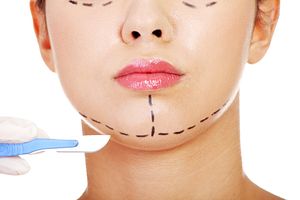Some Tuesday ASEAN links:
The Thailand Tourism Authority is offering three lucky tourists a chance at $5,000 cash, a luxury vacation… and free plastic surgery.
Medical experts and surgeons will judge photos and written explanations submitted by hopeful contestants who apply for the Extreme Makeover grand prize. Once finalists are chosen, the Thai public will decide by online voting which individual deserves the cash and tour package.
“According to the rules, the Extreme Makeover contest is open to non-Thai women between 25 and 45 years of age who are able to stay in Thailand for a month,” wrote CNN. “The finalists agree to give the Thailand Extreme Makeover project the right to use their names, images, videos and/or audio before and after surgery for display, public relations via online and offline media and domestic and international marketing.”
Ongoing anti-government protests in Bangkok have taken a toll on the Thai economy, where nearly 10 percent of GDP comes from medical tourism. Social unrest has led to a 40 percent drop in travelers seeking cosmetic surgery.
Thailand boasts 30 healthcare organizations that are accredited by Joint Commission International – an organization that evaluates the quality and safety of health care providers. To gain certification, international hospitals must meet the same standards as hospitals in the U.S.
Compared with the U.S., medical tourists in Thailand can expect savings of 50 to 80 percent for a variety of procedures.
Over in the Philippines, “Amerasians” face discrimination and legal hurdles while trying to connect with their U.S. parent.
There are an estimated 52,000 mixed-race individuals who come from broken homes with a parent that served during the U.S. military’s 94-year presence in the Philippines, which ended in 1992. A law bars them from obtaining citizenship, forcing many to languish in poverty without a connection to family in America.
“That law is the Amerasian Immigration Act of 1982, which welcomes Vietnamese, Korean, Thai, Cambodian and Laotian Amerasians to come to America to join their fathers,” said The Inquirer. “[It] excludes Filipinos and Japanese.”
March 4 marked International Amerasian Day. The term was coined by American author Pearl S. Buck to describe children born to American soldiers and Asian mothers.
While efforts have been made to re-write the 1982 legislation, the 2012 death of U.S. senator Daniel Inouye of Hawaii – the sponsor of a proposed change – has left the movement without a leader.
Finally, in Cambodia, authorities at the Foreign Affairs and Trade department confirmed that an Australian man who went missing in Thailand earlier this year has been found.
“Financial consultant Nathan Hansford had last been seen leaving his home in the Bangkok suburb of Thungkru on January 31, prompting Thai police to launch an investigation last week,” reported Yahoo News.
Consular officials in Cambodia contacted Hansford’s family, who released a statement saying that he had been involved in a motor vehicle accident and was suffering from amnesia.

































